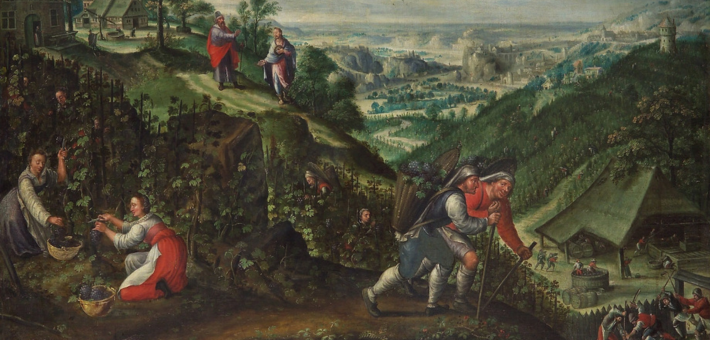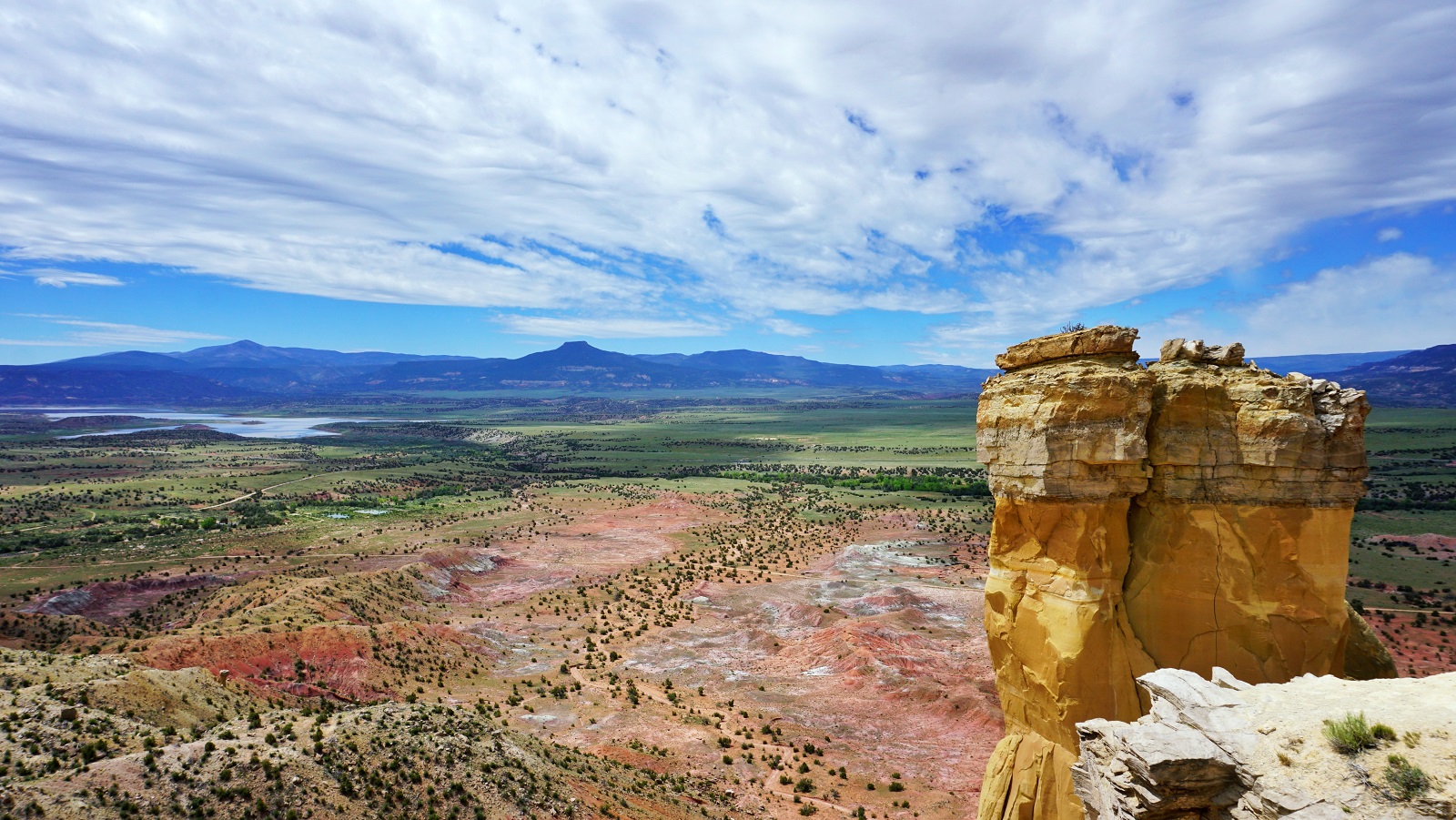Commentary on Psalm 80:7-15
Psalm 80 is a communal lament.1
It seems have been written in response to a disaster, most likely the fall and exile of the Northern Kingdom.2 The lament is dire, yet full of hope. Repeatedly, it calls on God to “restore” and “save” (verses 2, 3, 7, 19) to “turn again” (verse 14) and “give us life” (verse 18). The Psalm opens with a plea to God, the “Shepherd of Israel” (verses 1-3) to restore the people. It names God’s anger as the problem, resulting in the suffering of the people (verses 4-6). There follows a plea for restoration (verses 7).
From there the Psalm blossoms into a parable of Israel as a vineyard planted by God (verses 8-16). In this retelling of Israel’s history, the vine flourished under God’s care and became a blessing to all around it. But something went wrong. God broke down the walls that protected the vineyard. Predators trampled the vines and ate the fruit (verses 12-16). The Psalm concludes with a prayer for Israel’s restoration (verses 17-19), asking that God may once more shine on the people and save them. The lectionary text includes both the plea for restoration (verse 7) and the parable of the vine (verses 7-15).
The theology of the Psalm is about God’s character. And here we meet a God unconstrained by the bonds of niceness. Here is a God of love who cares passionately how people respond to that love. Since God wants to be in relationship with Israel, it matters how Israel responds. Although God’s love (and not Israel’s response or our response) is fundamental, the human response still has consequences. As a lover, God has to “play the ball where it lies,” which is often amid the brambles and thorns.
At first God’s face shines like the sun, in life-giving warmth and holiness, giving the people life. That tender care is seen in God taking the vine out of Egypt; for no living thing is more vulnerable than an uprooted plant before it is transplanted into new soil. Such a plant is completely dependent on the gardener. So God cleared the ground for the vine and tended it. God’s blessing made the vine flourish and spread until it covered the land. This loving, tending, blessing God is what most people want to hear about.
Then the story takes a hard turn: God has broken down the walls of the vineyard, leaving the beloved vine to be ravaged by predators. What could be the cause of this sudden turn from the loving, protecting God to the angry God who breaks down the wall and turns away? Verse 12 asks why God has broken down the walls of the vineyard. Perhaps (as verse 18 hints) the garden is desolate because the people have sinned and turned away from God.
The preacher need not move too quickly to answer the “why” question. Part of the Psalm’s power, writes James Luther Mays, is its “anguish and bewilderment” over the “contradiction between what God began and what he has now done, leaving [the vineyard] exposed for strangers to gather the fruit of the vine and for wild animals to ravage the vine (verses 12-13).”
Put another way, if God is the problem, God must also be the solution. Thus “The prayer concentrates … on the one thing and one thing alone—the divine Thou.” The congregation must look beyond even its own repentance “to a kind of repentance of God—his turning away from wrath to grace.”3
One of the most intriguing things about this Psalm is in verse 14, where the Psalmist asks God to “turn again” or repent, and look with love on the people once more. For some the thought that God might change course, turn around, or repent, is disturbing. Yet the God of the Bible is emphatically a God in relationship.
And to be in relationship calls for continual adjustment, like sailing or gardening or parenting. If God cannot “turn” and “remember” us, then we are praying into empty space, changing our own minds perhaps but not communicating with anything or anyone beyond ourselves. There is hope in a prayer that asks God to “turn again.”
The image of God as gardener (vinedresser) and the people as the garden or vineyard is found in many places in the Bible, including two of the other lectionary texts for the 19th Sunday after Pentecost. Isaiah 5:1-7 (often called “the song of the vineyard”) describes God’s relationship with Israel and Judah. This is reinterpreted in Matthew 21:36-46 (also Mark 12:1-12 and Luke 20:9-19) in the parable of the wicked tenants in the vineyard.4
Psalm 80 may be used together with the first lesson and Gospel lesson as an enrichment to the biblical imagery of the vineyard. If used as the main text for preaching, Psalm 80 will easily support a three-stage sermon:
1. Thanksgiving for God’s love in the past.
2. Naming our grief in times of loss or abandonment.
3. Confessing our hope that God God’s mercy will shine on us once more.
The message of Psalm 80 is expressed very well in a hymn from the Sacred Harp.5 The language is old, but the plea for renewal still rings true. In this hymn “plantation” means any farm or a planting and is not connected with southern slavery. Here each person and congregation is a plantation, in which the Gospel is planted.
Savior visit thy plantation, grant us Lord a gracious rain.
All will come to desolation unless Thou return again.
Lord revive us, Oh revive us. All our hope must come from Thee.
Lord revive us, Oh revive us. All our hope must come from Thee.
Keep no longer at a distance, shine upon us from on high
Lest for want of thine assistance, every plant should droop and die.
Lord revive us, Oh revive us. All our hope must come from Thee.
Lord revive us, Oh revive us. All our hope must come from Thee.
Notes
- Commentary first published on this site on Oct. 5, 2014.
- New Interpreter’s Bible, vol. IV (Nashville: Abingdon, 1996), 998, 999.
- James Luther Mays, Psalms, Interpretation (Louisville: Westminster John Knox, 1994), 263.
- New Interpreter’s Bible, vol. IV (Nashville: Abingdon, 1996), 964.
- The Sacred Harp, Denson Edition (Atlanta: Sacred Harp Publishing, 1991), 335.



October 8, 2023